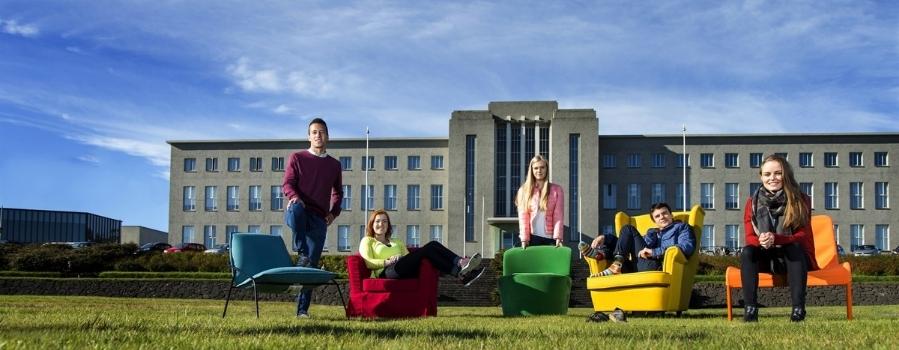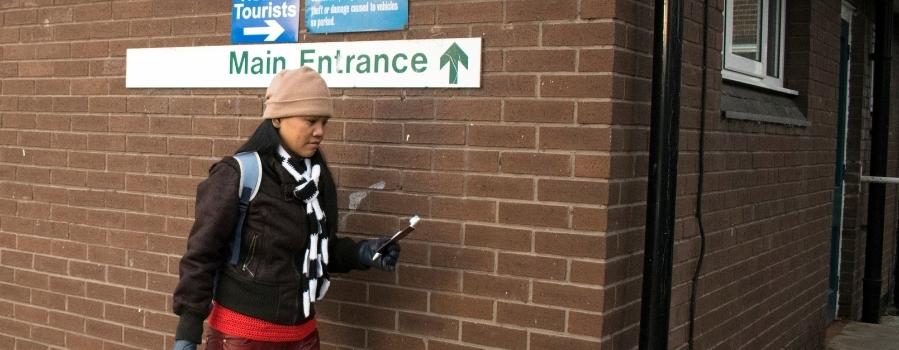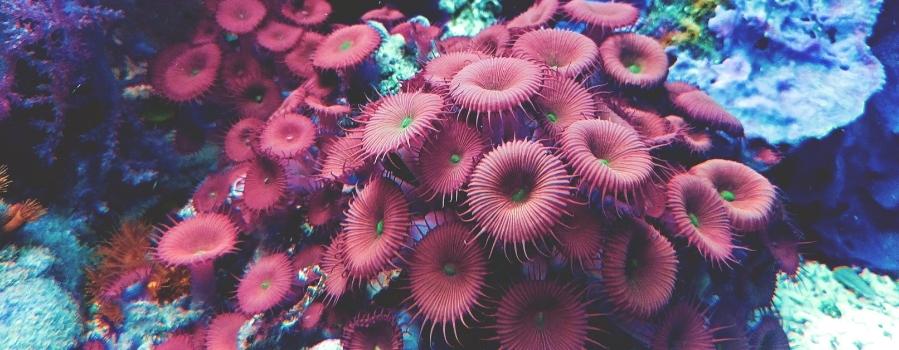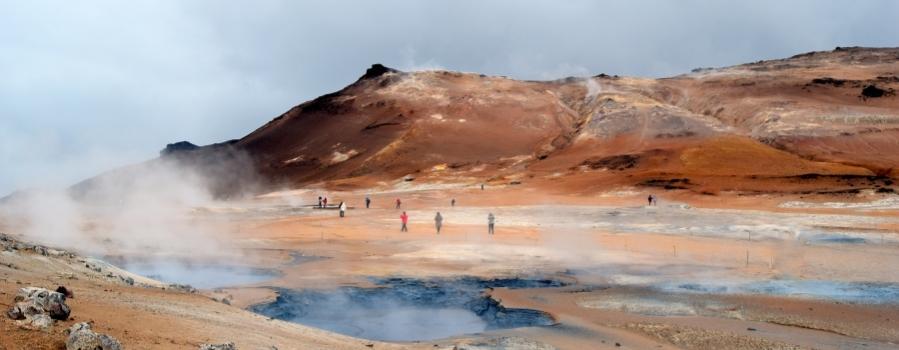- Population: 366,425
- Currency: Icelandic króna (ISK)
- University Students: 13,981
- International Students: N/A
- English-taught Programs: N/A
With just seven universities, Iceland is a small country, but the quality of education here is world-class. The number of overseas students studying in Iceland is much lower than it should be. Despite this, communication is not hindered. English is widely spoken in Iceland. The country’s power engineering programmes are particularly well-known. The vast majority of the country’s electricity is generated by renewable sources.
It’s a great place to study for free. All students, including international students, are eligible for this option at public colleges. In spite of the fact that many undergraduate programmes are taught in Iceland, there has been an increase in the number of English-language specialities.
You can save up to four times the amount you would pay in the Netherlands, France, or the United Kingdom by attending a public university here. Low crime rates and great quality of life are hallmarks of the country. Gender equality in Iceland is also one of the country’s most notable achievements. Studying and residing in the country is made easier by these considerations. Every semester in Iceland, you’ll need to show that you’re effectively completing your studies in order to renew your student visa. It’s a wonderful incentive to study, though.
OVERVIEW STUDY IN ICELAND

Iceland is a small island nation off the coast of Europe. All throughout the world, people find Iceland to be a fascinating country, with its ice volcanoes and black beaches. However, Iceland is a great place to study abroad.
Icelandic universities feature undergraduate programmes that are largely taught in Icelandic, thus students applying for these programmes must provide confirmation of Icelandic competency or take preparation classes before they begin study. After graduating from college, you can pursue a Master’s degree in English.
Iceland’s educational system is similar to that of other European countries. The Bologna Process was embraced by Iceland, as well as many other European countries. Iceland has a total of seven universities, with four of them being public and the other three being private. In Iceland, there are three levels of university education, bachelor’s, master’s, and doctoral.
International students make up 5% of Iceland’s higher education student population, and the country continues to welcome newcomers. If you choose to study in Iceland as a student, you will be welcomed into one of Europe’s most progressive and secure nations.
Students in Iceland apply directly to the University of their choosing because there are no centralised application portals in the country. Filling out an application form and attaching the necessary documents is the most common way to begin the process of applying to a university.
A copy of your passport and curriculum vitae, as well as your transcripts and diplomas from high school and college, are usually required as well as proof of language competency. A single Icelandic dialect is used to teach the majority of bachelor’s degree programmes, as well as for official government business. This does not mean that English is the only language of instruction for Master’s and Ph.D. programmes.
UNIVERSITIES IN ICELAND
Reykjavk’s University of Iceland is the country’s oldest and most esteemed institution of higher learning. Known for its research, the university has appeared in the Times Higher Education World University Rankings in 2014 and 2015. It offers a wide range of English-taught programmes, in keeping with the majority of Icelandic universities.
It is estimated that around 5% of the approximately 18,000 current students in Iceland’s university system are from foreign nations. From September through May, the academic year in Iceland is divided into two semesters or terms. In Iceland, you can get one of the following five types of advanced degrees:
- Three or four years is typical for bachelor’s degrees.
- Candidates’ degrees are typically four to six years in length and qualify the holder for a specific career.
- After completing one year of postgraduate education, some students are eligible for postgraduate certificates.
- A master’s degree is given to postgraduate students after two years of study. Almost identical to the UK, the program/degree requires a substantial research project or thesis.
There are seven authorised universities in Iceland at the post-secondary level. As one of the world’s most literate countries, it is obvious that the country’s colleges and universities are of the highest calibre. What’s more, students at public universities don’t have to worry about paying tuition. In addition to being one of Iceland’s most prestigious educational institutions, the University of Iceland is also an active member of the world’s scientific and academic communities.
TUITION FEES IN ICELAND
Iceland is no exception to the rule when it comes to the cost of living in the Nordic countries. As we’ve already discussed, public universities are free to attend. Only a “registration fee” of $500/year is charged. There are several private universities in Europe that charge both tuition and registration costs, yet they are still less expensive than many European universities. For example, the largest private university in Iceland, Reykjavik University, charges between 5,100 and 7,300 euros every term for students.
The University of Iceland, Agricultural University of Iceland, Hólar University College, and the University of Akureyri are all public universities in Iceland that do not charge tuition fees. An annual registration fee of ISK 75,000 (about £385) is charged to students by the University of Iceland. The three private institutions charge tuition fees, but degree and postgraduate programmes are often less expensive than those in the United Kingdom.
The best part of higher education in Iceland is that students do not have to pay tuition fees at public colleges. Even students from outside the United States are not required to pay tuition fees. For non-EEA students, there is an annual administration cost of roughly ISK 57,124 ($448) and an application fee of around ISK 6,175 ($48) that must be paid. Consider the fact that private colleges and universities demand tuition fees.
It’s a good thing that Iceland doesn’t charge tuition fees, because living costs in the country are generally rather high. They may differ based on where students choose to live, as well as how much money they have available to spend.
COST OF LIVING IN ICELAND
Since most students attend and reside in Reykjavk, these figures will reflect the cost of living in the capital city, where the majority of students study and reside. The typical rent is between $1,200 and $1,650 per month, but if you choose to live with a roommate, you can cut that cost in half. $500 to $700 a month is needed for food and daily expenses, depending on your lifestyle. Per term, it costs around $35o for textbooks and other study supplies. Cost of public transportation per month is about $50. At least $250 a month is needed for recreational activities.
It’s no surprise that so many students opt to study abroad in the nation, which boasts glaciers, volcanoes, and an affordable cost of living. Ice climbing and swimming in volcanically heated pools are just two of the many exciting things students may do in Iceland thanks to the country’s unique geography, which never fails to captivate. Reykjavk, Iceland’s capital, has a vibrant nightlife and shopping attractions.
International students won’t have a hard time finding a place to stay in Iceland because most universities have student housing close by. The international office of a student’s host university can provide information and advice with regard to housing. ISK 92,634 ($727) is the average cost for this sort of lodging.
If on-campus housing is full, international students have the option to live off-campus if they prefer. It’s common for this sort of lodging to be more expensive and to involve either a single apartment or a shared apartment with others. A private room can cost as little as $848 and as much as $200,000, depending on location and amenities (1,575). Depending on the city in which students choose to live, these prices can rise or fall.
INTERNSHIPS & COMPANY PLACEMENTS IN ICELAND
Iceland has become a popular tourist destination because of its spectacular landscapes, which include active volcanoes, sand plains, unending mountain ranges, massive glaciers, and other geological features. Internships are a wonderful alternative if you want to get to know this small Nordic island with a population of roughly 330,000 people in a more personal way and obtain excellent professional experience.
With a good level of living, this country is a great place to obtain expertise in a particular field of study or career. As a result, internship in Iceland is not only a great opportunity to gain valuable job experience, but also an opportunity to explore the land of fire and ice, from the volcanoes to the glaciers. People interested in the tourism, hospitality, or science industries, particularly marine biology, ecology, geology, and forestry should consider an internship in Iceland.
Many internships in tourism and hospitality can be found in the capital city of Reykjavik, but there are also chances in more rural tourist spots, such as Akureyri. If you’re interested in marine biology and ecology, you’ll find plenty of internship opportunities in Iceland’s coastal towns, where fishing is a major industry.
Hospitality and tourism

Increased tourist demand has led to a massive growth in Iceland’s tourism and hospitality businesses. International tourists are coming to Iceland like never before, in part because of the country’s natural beauty and in part because low-cost airlines like Wow Air and Icelandic Air are increasing their flights to Iceland. There are several internship opportunities in the tourist and hospitality industries in Iceland if you are interested in working in these fields. Working in a hotel or restaurant, as well as in an outdoor tourist activity or tour group, are possible options. Marketing and public relations internships are common in the tourist and hospitality industry.
Marine Biology

Many internships are available in fisheries, marine biology, and marine conservation in Iceland’s fishing industry. As a coastal town with a strong fishing and marine biology sector, safjorur in northwest Iceland is a popular place for these kinds of internships. Another well-liked place for maritime research is the northern Icelandic town of Hsavk.
Geology and Forestry

Even though Iceland’s population is concentrated along the coast, reforestation has taken root in the interior thanks to a government-sponsored scheme. As a result, there are now internships in forestry and agriculture available to students. Even in the heart of Iceland, such as Vatnajokull National Park’s 14,000 square kilometres of glacier national park with active geothermal zones, ice caves, gigantic ice sheets and a glacial lagoon filled with enormous floating ice floes, there are internships in geology that can be pursued.
Preparation for an Internship
When visiting Iceland, one of the most difficult things for visitors to adjust to is the climate and the length of daylight. Iceland has 21 hours of darkness and near-arctic temperatures in the winter, while the pleasant weather in the summer is ideal for outdoor activities and the sun only sets from about midnight to 3 a.m. You won’t have to worry about not being able to speak with your co-workers and other Icelanders because English is widely spoken in Iceland.
When Is the Best Time to Intern in Iceland?
Internships in Iceland can be obtained at any time of year, but many industries are busier in the spring, summer, and autumn seasons than during the long Icelandic winters.
SCHOLARSHIPS IN ICELAND
International students who want to study Icelandic history, literature, and language at the University of Iceland are eligible for a number of scholarships each year. However, they are awarded by the Icelandic Ministry of Education, Science, and Culture, and there are numerous limitations, such as the requirement that students have some prior knowledge of Iceland and that the majority of the money go to those under the age of 35.
WORKING IN ICELAND
If you’re a student in Iceland, you’re allowed to work while you’re there. An EEA/EFTA citizen does not require a work permit and has no significant restrictions on their employment. All non-EEA/EFTA residents are required to obtain an employment authorization before they can work more than 15 hours per week during the academic year. Regardless of your situation, if you have a job, you owe taxes.
APPLYING FOR A STUDENT VISA TO STUDY IN ICELAND
EU citizens do not require a visa, although students planning to remain for more than three months will need a residence permit. It is possible to obtain this type of permit either before or after your arrival. To learn more about visas for non-EU students, contact the Icelandic embassy in their home country. An Icelandic ID or social security number) is required for all students when they arrive in Iceland. A bank account must be opened, and a tax identification card must be obtained, both of which necessitate this.
FAQ:
Is Iceland good for study?
Seven highly qualified international academic programmes are available in Iceland for students interested in pursuing a higher education in a variety of subjects. International students are encouraged to submit applications to Icelandic universities, which are happy to consider them.
Is education free in Iceland for international students?
In Iceland, there are no tuition fees for students who attend a public institution (this applies both to EU and non-EU nationals). The annual registration price is roughly €500, however.
Is English spoken in Iceland?
If you intend to study in English, you will need to take an IELTS, TOEFL, or PTE exam. It’s necessary to pass an admission exam in Iceland if you want to study there. Admission requirements and/or exams set by the university may apply to some subjects. Typically, these are in fields like medicine, economics, and law, among others. If you master the Icelandic language, you’ll be able to study for free in most college programmes.
Is it easy to get a job in Iceland?
You can get job in Iceland, but you have to try hard for it. Living in Iceland without work is nearly impossible for foreigners who lack basic knowledge of the local economy and are unfamiliar with the country’s culture.
How can I get PR in Iceland?
If you have resided in Iceland for four years on a temporary residency visa that qualifies you for permanent residency, you can apply for a permanent residency permit. Applications for a permanent residency visa can be made on the basis of the following temporary permits like work that necessitates a high level of expertise.
How much does it cost to live in Iceland as a student?
Iceland’s cost of living is very high, especially for a country the size of Iceland. A one-bedroom apartment in central Reykjavik costs, on average, $990 a month in rent. Food is also expensive, so set aside some money each month for it. In Iceland, the majority of internships are unpaid, but you may be provided with food, accommodation, and/or transportation expenses as part of the deal.
Is Iceland good for Masters?
A Master’s degree in Iceland provides a wide range of cultural experiences and a high standard of living. More over 1,200 international students call Iceland home, accounting for about 5 percent of the country’s student population.
